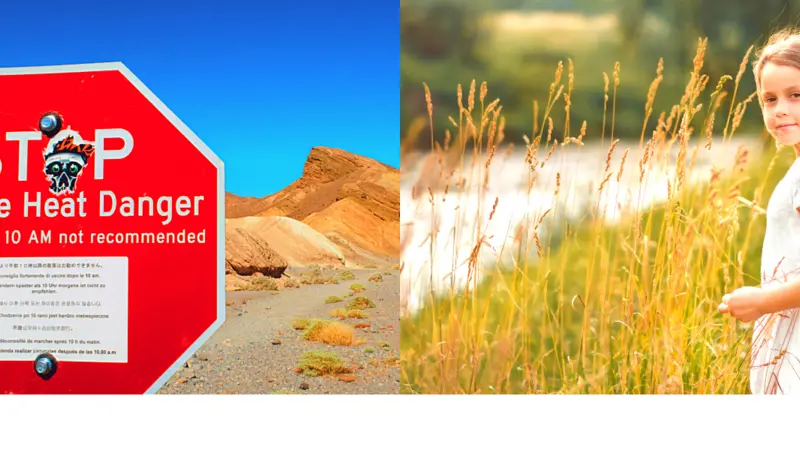

WELLthier Living and Aging

WELLthier Living and Aging
How to Stay Healthy in Extreme Heat
Climate change has led to more frequent and severe heat waves that are affecting health across the United States.
So says the Health Care Climate Council, a network of health systems and hospitals committed to protecting patients and employees from the health impacts of climate change.
In a brochure detailing the effects of extreme heat, the council says that heat is the leading cause of weather-related deaths in the U.S. Yet, these are almost all preventable.
Humans need clean air and water, nutritious food, safe shelter, and caring communities in order to thrive. But climate change increases air and water pollution, disrupts food production, and leads to more extreme weather events, all of which can harm human health. Extreme heat leads to conditions such as dehydration, heat cramps, heat exhaustion, and heat stroke. Air pollution is also worse on high heat days.
The council gives advice on what to do on extremely hot days:
- Do not spend long periods of time outside. If you must be outside, go out in the morning or the evening, take breaks, and stay out of direct sunlight.
- Stay hydrated by drinking plenty of water and avoiding sugary or alcoholic beverages.
- If you feel dizzy, weak, nauseous, or faint, seek medical advice. These could be symptoms of a serious medical condition.
To avoid negative outcomes during periods of extreme heat, people are advised to:
- Monitor local weather news for periods of extreme heat. Be sure to look at the heat index, which measures how hot it feels based on temperature and humidity levels.
- Check out the OSHA Heat Safety Tool app for real-time heat index and hourly forecasts.
- Check on your friends and neighbors to make sure they are prepared. If you or your neighbors do not have air conditioning, identify public cooling spaces in your community. Check with your local government, city health department, or your local news for public cooling centers such as hospitals, libraries, schools, shopping malls, or community centers.
REFERENCES
Climate change and your health: Extreme heat. Health Care Climate Council. https://test.ms2ch.org/wp-content/uploads/2016/10/HCCC_ExtremeHeatBrochure.pdf



 By
By








